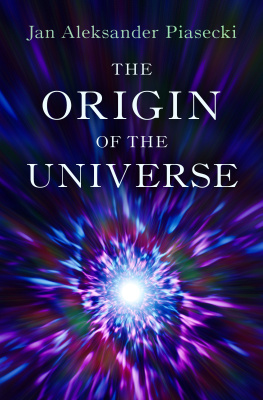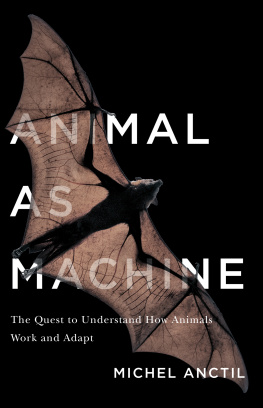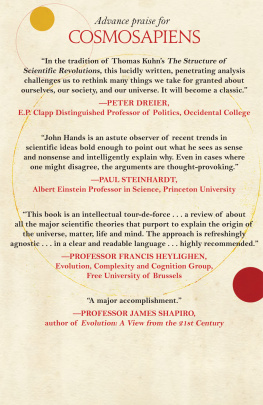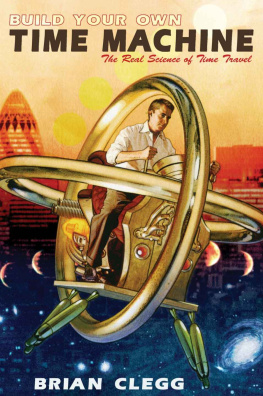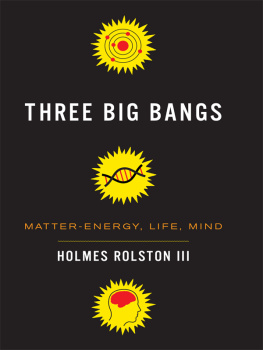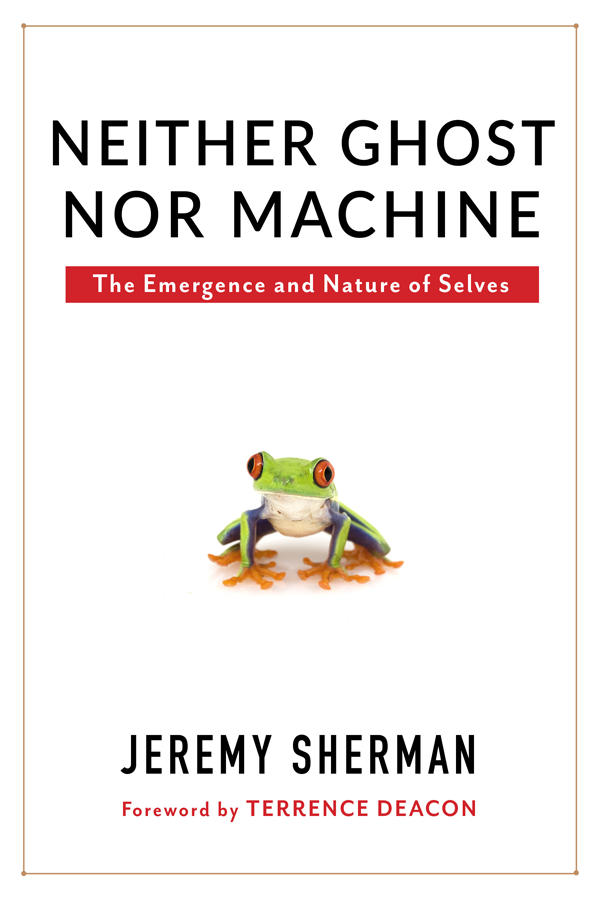Contents
Guide
Pagebreaks of the print version
NEITHER GHOST NOR MACHINE
NEITHER GHOST NOR MACHINE
THE EMERGENCE AND NATURE OF SELVES
JEREMY SHERMAN
Columbia University Press
New York
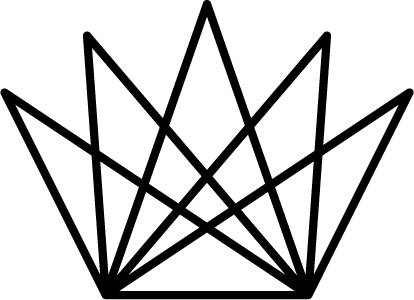
Columbia University Press
Publishers Since 1893
New YorkChichester, West Sussex
cup.columbia.edu
Copyright 2017 Columbia University Press
All rights reserved
E-ISBN 978-0-231-54599-0
ISBN 978-0-231-17332-2 (cloth)
ISBN 978-0-231-17333-9 (paper)
The Library of Congress has cataloged this record under
LCCN: 2017028428.
A Columbia University Press E-book.
CUP would be pleased to hear about your reading experience with this e-book at .
FOR TERRENCE W. DEACON

CONTENTS
Terrence Deacon
TERRENCE DEACON
W hen longtime colleague Jeremy Sherman first approached me with the idea of producing a brief and simplified account of the theory presented in my six-hundred-plus-page book Incomplete Nature I was quite skeptical. More than one academic reviewer has failed to grasp its central theme, and many have fallen prey to the expedient of assimilating it to currently popular paradigms that it instead critiques. Readers have often commented that the density and diversity of subject areas the theory covers make the main ideas difficult to assimilate. Yet others have worked to create road maps into the material to help readers see the core paradigm-challenging claims being offered, but with only partial success. Even I have found it impossible to compose the elevator speech that summarizes the main ideas.
So I have assumed that an effort to present its most important ideas to an audience with no particular scientific or philosophical preparation is unlikely to succeed. Following Einsteins rule of presenting an idea as simply as possible but not too simply, wouldnt such a distillation be too simple?
Neither Ghost nor Machine has begun to change my mind about this.
I have known and worked with the author for nearly two decades discussing these ideas. We have coauthored a few short papers presenting some of them and his input has played an important role in fine-tuning many of the ideas developed in Incomplete Nature . While I have been producing books and papers for an academic audience, he has been a prolific blogger, producing a widely read blog for Psychology Today . So, if anyone could communicate these ideas to a lay audience, he should be able to.
Over the course of more than a year, we have had dozens of conversations about ways to approach this material. During the process of these discussions, one of the main aims was to determine how to present the theory with the fewest technical terms and minimal scientific details, while still communicating the core ideas. Chief among these aims was finding common terms that convey the central concepts most accurately, but in a way that makes them seem familiar while at the same time highlighting critical unquestioned assumptions about their meanings. In these deliberations, it became clear that the core concepts can be exemplified by the commonsense notions of selves and aims .
Though everyone is familiar with these concepts and uses them daily without a second thought to explain what goes on, they are not so innocuous when they are imported into the natural sciences. Indeed, they are all but forbidden because of the ways they often serve only to masquerade as explanations. But selves and their aims arent illusions. Human and nonhuman aims have radically altered the surface of the planet. It is, therefore, bordering on the absurd that our current theories of everything, which purport to provide the most fundamental explanations for all that exists, should simply fail to include an explanation for the very properties that theorizing itself depends on.
For some reason, we just dont seem to have well understood commonsense scientific concepts to handle these sorts of phenomena. This helps to explain why two of the most enigmatic scientific mysteries of our age are the nature of a conscious self and the origin of life. I have argued that it is not the technical complexity as much as the counterintuitive nature of these phenomena that is the problem. So, the task of producing something like a beginners guide to solving these mysteries, without delving into scientific detail or introducing esoteric new terms and concepts, is a daunting one. Can this be done simply but not too simply? Can the analogies used to provide insight into the essential principles avoid misinformation and yet convey essential insights that have so far evaded our best science? Can the use of commonsense language convey the essence of concepts that are in many respects quite alien to common sense?
As I have witnessed the gestation of this book through dozens of rewrites and edits, I have been impressed by the care taken to find just the right terms and examples. The choice of self and aims to convey the core ideas in Incomplete Nature instead of the neologisms autogenesis and teleodynamics is a great example of such a choice. But so is the distinction made between regularization and self-regeneration , as they are used to capture the difference between, for example, whirlpools and organisms, respectively. Even where the same molecular thought experiment described in Incomplete Nature an autogenis used to exemplify the transition from inanimate to animate (functionless to functional) systems, the account makes use of metaphors and analogies that make it seem familiar and imaginable. The result is a solid first step toward making the unfamiliar familiar and the esoteric relevant.
But this book is more than merely a simplified prcis of Incomplete Nature . The larger context of my research, which motivated me to explore these issues in the first place, includes decades of neuroscience research and an interest in the evolutionary process that produced such distinctive human capacities as language and symbolic reasoning. Neither Ghost nor Machine makes connection with some of this work. In particular, it shows how this account of selves and aims can help to explain the surprising role played by relaxation of selection in the evolution of biological complexity and higher-order cooperative behaviors.
Finally, as this foreword might demonstrate, my style of writing is perhaps too steeped in the academic tradition to be easily assimilated by the general reader. And besides, only the most dedicated reader can slog through the over six hundred pages of Incomplete Nature required to get the full story. In contrast, Neither Ghost nor Machine is a brief read, written in an accessible, conversational tone that wont require periodic rereading of contorted sentences to get their gist or running to the dictionary or the glossary to interpret unfamiliar terms.
Whether as a stepping-stone to reading more technical books and papers on these topics, a means to sweep away a few of the cobwebs of intellectual complacency, or an exercise in thinking a few radical thoughts on topics encompassing all of what matters to us most, this book will be sure to reward the curious and open mind.
WHAT ARE WE?
Every generation marvels at what prior generations didnt know, the mysteries they hadnt yet solved, perhaps hadnt even noticed. We might, therefore, wonder what future generations will look back at as our biggest blind spot. What central scientific mystery havent we solved yet and perhaps havent even noticed?


